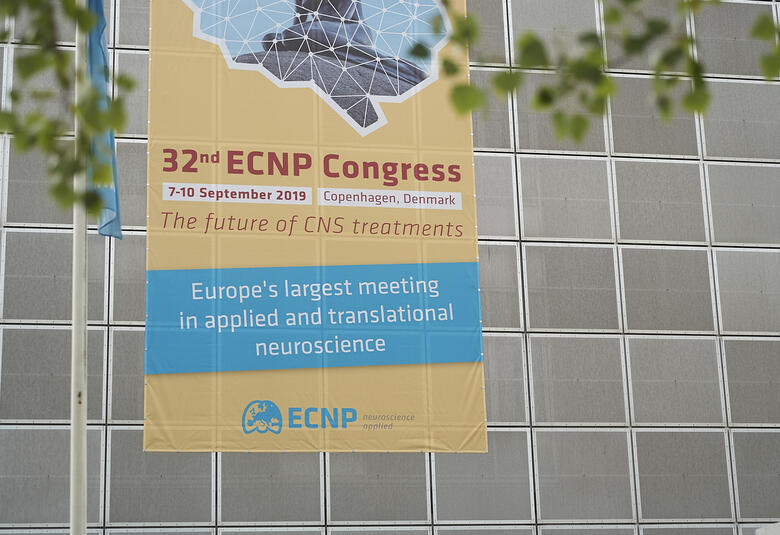
Quality of life – time for a conceptual shift in therapeutic outcomes in schizophrenia?
The chair of this session at ECNP 2015, Professor Dieter Naber, of the University Medical Centre Hamburg-Eppendorf, Germany, assured delegates that they would have an interesting time. The symposium certainly lived up to his promise, with stimulating presentations from three highly experienced scientists and clinicians.
A conceptual shift in outcomes
Prof. Naber gave thebackground to this session when he described how patient quality of life (QoL) was a relatively neglected treatment goal for the first 30 years of antipsychotic use in schizophrenia. There has been more research attention paid to QoL and patient functioning in the past 10–15 years, and the importance of these is now highlighted by their inclusion in most treatment guidelines. Nevertheless, challenges remain in how best to measure these outcomes, and in the differences in treatment priorities for clinicians, patients and their caregivers and families. These issues were expanded on by the three speakers.
Patient priorities
Prof. Wolfgang Gaebel of the Heinrich-Heine University, Düsseldorf, Germany emphasised the seriousness of schizophrenia, as a chronic disorder in which patients often experience a profound deterioration in QoL and functioning over time. In patients who relapse repeatedly, deteriorating psychosocial function has both physical and mental sequelae, all resulting in poor patient health and a reduction in QoL. As a consequence, not only remission from symptoms, but also relapse prevention and recovery – that is, symptom remission and restored social and occupational functioning, are key long-term treatment goals. For patients, improved QoL and subjective well-being, experienced through social connectedness, meaningful relationships, a sense of purpose through work, volunteering and functioning in society, are extremely important treatment outcomes.
Current challenges in assessing QoL include how to measure it: using self-report or expert-rating scales, and using disease-specific rather than generic scales, although all scales have their advantages and disadvantages. Prof. Peter Falkai of Ludwig-Maximilians University, Munich, Germany emphasised that assessment of both QoL and symptomatic improvement need to complement, not fight with, each other. Subjective (patient-rated) QoL does not correlate well with expert-rated measures of psychopathology, but both are important in assessing the patient to optimise long-term therapeutic outcomes.
Physical as well as mental health
Prof. Falkai alsodiscussed the uncomfortable fact that schizophrenia has unfavourable long-term outcomes and a poor prognosis in about 50% of patients. The primary focus of clinicians is usually on the patient’s psychopathology; there is often less focus on the patient’s physical health, although this can have a strong impact on their subjective well-being. Patients with schizophrenia often have poor physical health, as a result, for example, of inactivity, smoking, substance abuse, and weight gain and metabolic changes. When patients participated in a programme of physical activity and cognitive remediation, there were positive effects on their global functioning and on the social adjustment scale. Patients also generally reported liking this intervention because the exercise programme ensured they took part in an activity together with other patients, all of which may have contributed to the benefits of the intervention.
Dr John Kane from the Zucker Hillside Hospital, New York, USA, also emphasised the importance of a comprehensive treatment approach for schizophrenia, using non-pharmacological interventions along with pharmacotherapy in order to bring about the best outcomes for patient QoL. There is relatively little research information available on the effects of these psychosocial treatment options on patient QoL, nevertheless, a few studies have shown robust long-term benefits.
Non-adherence doesn’t make a ‘bad patient’
Both Prof Graebel and Dr Kane addressed the issue of non-adherence to treatment. Poor adherence is a worldwide problem in all chronic diseases, not just schizophrenia. Interventions designed to improve adherence can therefore produce large beneficial effects on many patients’ long-term outcomes. Dr Kane advocated that patients who are non-adherent to their medication should not be stigmatised: this is not the action of a ‘bad patient’, but it is human nature to forget to take a medication. Thus, the long-acting injectable (LAI) antipsychotics, which give immediate transparency to non-adherence can play a part in reshaping patients’ relationship with their medication, and, in turn, their long-term treatment outcomes including QoL. In addition, long-acting atypical antipsychotics provide patients with more treatment options and good tolerability, which may well further optimise their prognosis and outcomes.
Our correspondent’s highlights from the symposium are meant as a fair representation of the scientific content presented. The views and opinions expressed on this page do not necessarily reflect those of Otsuka and Lundbeck.



